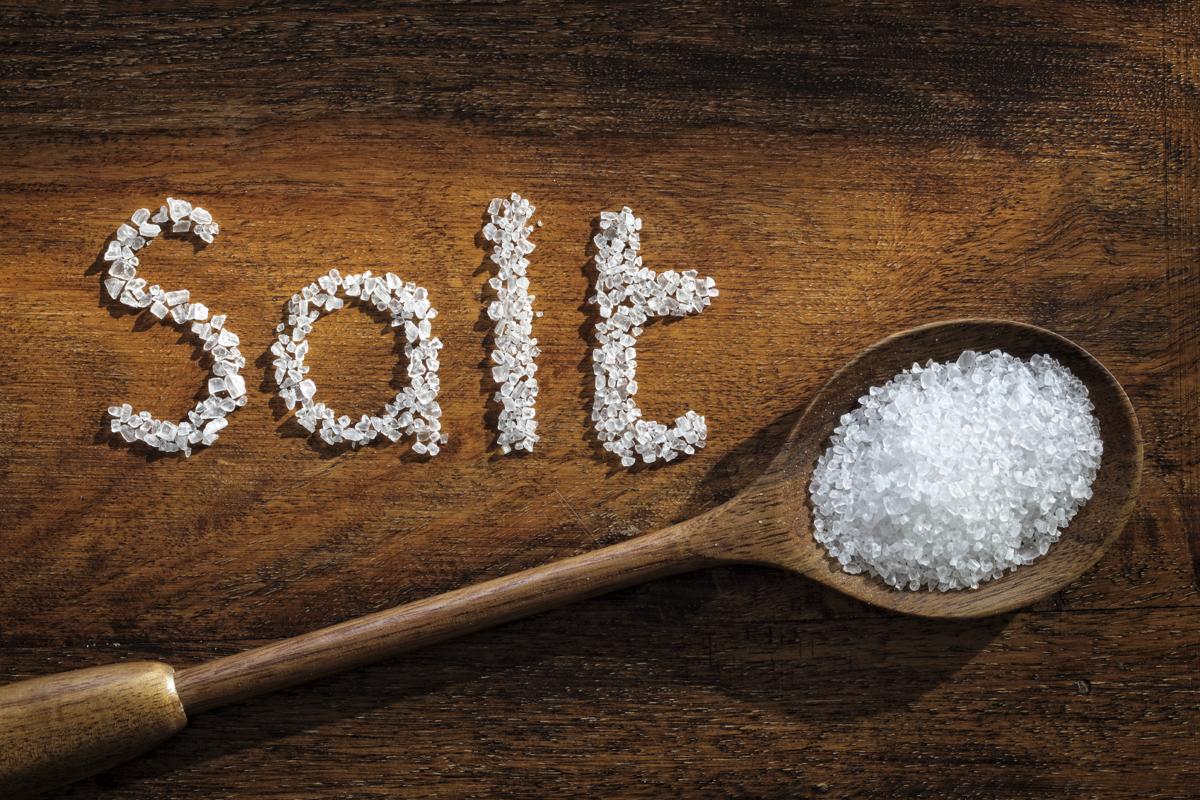Eating too much Salt, What's its impact in the Body???
Salt is very important for the function of all of the cells within the body because it's a solution. Nerve cells are notably sensitive to the number of salt within the blood as a result of this, they have electrolytes to operate properly. An excessive amount of or insufficient salt will cause issues with the nerves in your brain and elsewhere in your body.
It’s very uncommon to hear that an excessive amount of salt is dangerous for you, but new research has shown that a salt-rich diet will have a sudden impact on your health beyond heart issues and high blood pressure.
The latest study by neurologist at Weill Cornell Medical College in New york shows that the high intake of salt have a detrimental effects on the memory and thinking ability. Mice were first used as a specimen for the experiment. The mice were fed for either 8 or 16 times with foods containing the amount of salt in their food. Within 8 to 12 weeks, the mice were observed to show some signs of memory and thinking problems. How is this possible, can they really think?? The mice cant differentiate new objects, either new or known ones around them.
Comparing experiment with humans would be just like: memory problems, disorientation and imbalance on daily activities.
SALT AND NEURON FUNCTION
Nerve cells, additionally referred to as neurons, need little electrical currents to work properly. To come up with these electrical currents, your neurons control the amount of various electrolytes within and out of doors of the cell. It has a special channels that permit salt to flow into the cell; these channels are initially opened once the neuron receives chemical signals that tell it to come up with its electrical current. The flow of salt ions generates a little electric charge inside the nerve cell, that causes sodium ions elsewhere in the neuron to open. This creates a little electrical current referred to as an action potential that's responsible for nerve cell activity.
TOO MUCH SALT AND NERVES ISSUES
If you have got an excessive amount of salt in your blood, you have got a condition called hypernatremia. Hypernatremia will cause a range of symptoms, as well as brain issues, as a result of the surplus of sodium disrupts the natural electrical currents of your nerves. Hypernatremia is typically caused by dehydration, leading to the salt in your blood turning into concentrated. Neurologic signs of hypernatremia include lethargy, irritability, changes in mental status, restlessness, seizures, and twitch or spasms.
HYPONATREMIA AND THE BRAIN
Although an excessive amount of salt may be dangerous for your brain, insufficient sodium can even disrupt nerve function. Hyponatremia may be caused by kidney issues, congestive heart condition, the use of diuretics, drinking an excessive amount of water, severe diarrhea and vomit, liver cirrhosis and using some medications. Some signs to look after include; headache, confusion, seizures, fatigue and unconsciousness.
HOW TO CHECK IF YOU ARE TAKING TOO MUCH SALT
Drinking Water Often(thirst):
 source
source
Foods with high quantity of salt (think: chips, pasta sauce, and sausage pizza) cause you to feel thirstier, as a result of salt messes with the balance of fluid in your body. If you had each day of ingestion additional high-salt food, like at the sport guys, try and drink plenty of water. Your body is perhaps desire water, thus it will restore the salt balance in your cells.
Stomach Ulcer:
.jpeg) source
source
High consumption of salt has been traced to stomach ulcers and cancer in animals, in line with a study revealed within the journal Infection and Immunity. though a lot of analysis is required, the findings recommend that people ought to be cautious of salt damaging their stomach lining. be careful for these silent signs you may have an ulcer.
High blood Pressure:
.jpeg) source
source
According to American Heart Association, 1,500 milligrams of salt is required daily. Additional salt can increase blood pressure by holding a lot of fluid within the body, creating your heart pump harder.
Kidney Stone:
.jpeg) source
source
A diet high in an excessive amount of salt will actually hinder kidney function. An excessive amount of salt will increase the quantity of protein found in your urine. A lot of protein in your urine may be a major risk factor for kidney disease. In addition, high-sodium diets may increase the chance of kidney stones. If you have got excessive kidney stones or pain, you must see a doctor and work with a nutritionist to change to a low salt diet.
Fogging Brain:
.jpeg) source
source
Brain foggging is simply happens when you feel some symptoms like: confusion, unretentive memory and not focusing and mental clarity. No one can actually predict the impact of salt on the brain function. Adults with high-salt diets had a higher likelihood of cognitive decline than those with less salt in their diets. As you age it's vital to keep track of what quantity salt you consume, and make changes if necessary.
Know this
Normally the salt concentration in your blood are going to be between 135 and 145 milliequivalents per liter of blood. An excessive amount of or insufficient salt will cause serious health problems; if you're concerned regarding the number of salt in your body, see your doctor. Doing test main in the blood will show or reveal the amount of salt in your blood and verify if you're in danger of getting brain issues owing to sodium imbalance.
Content Source:

